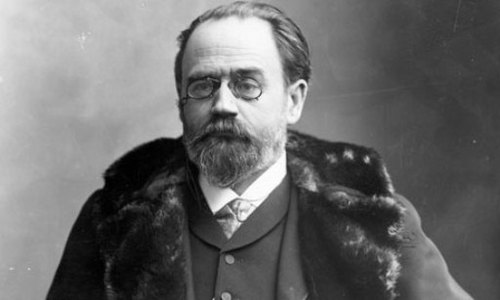My one liner: Zola’s classic and probably most famous. Evocative 19th
century Paris. Trials and tribulations of Gervaise the laundry girl, who finds success and happiness through hard work. Then loses it all through drink, and through events beyond her control.
“Her dream was to live amongst decent people, because if you kept bad company, according to her, it would hit you like a blow from a mallet, break your head and flatten a poor woman in no time”
Gervaise is a laundry-woman who knows what is like to be poor, abused, and abandoned by a lover to bring up two children. Miraculously, given that this is 19th century Paris, she manages to turn it around. With the support of a caring and supportive new husband M. Coupeau the roofer, the generosity of a neighbour-lender M. Goujet and his mother, and by dint of sheer grit and determination, she becomes the proud proprietor of a successful laundry business. Surely, knowing where she came from, she will not let the idyll slip away. Yet, by end, “no one even knew what exactly she died of. There was talk of cold and warmth, but the fact was that she died of poverty, or the filth and weariness of her own life.”
Of course in reality it is more complicated than that. A classic illustration of self-fulfilling prophecy in both directions. Success breeds success, of course. On the way up. But on the way down you have no shortage of detractors who wish your downfall. Chief amongst these are M and Mme Lorilleux, Coupeau’s sister and brother in law. Opposed to the marriage in the first place, jealous in the extreme when Gervaise shows signs of success, they are the first to spread gossip rumour and innuendo as soon as they spot chinks in the armour.
An unfortunate roofing accident for M. Coupeau has incapacitated him, temporarily, we all want to believe, as he is a hard-working and honest man.
But he is not emotionally equipped to recover from setback, and soon the comforts of his incapacitation, the medical care funded out of Gervaise’s savings, and the success of her business make him delay his return to work. As do the increasingly frequent visits to the drinking den. When he increasingly keeps the company of men such as “Bec-Salé (also known as Drinks-Without-Thirst)” you know where fate is taking him.
New dependants arrive in the Coupeau household. A baby daughter. Mme Coupeau, the mother (foisted by the Lorilleux). And unbelievably, M. Lantier, the former lover. All supported by Gervaise. If this were a play, at every act of generosity the audience would be willing Gervaise not to take it on. But she does, and runs up more debt from her benefactors the Goujets.
And she has a further opportunity to avoid the impending train crash. M. Goujet, physically strong and emotionally stable, works at the forge, a classic hero. Gervaise frequently stops by and cannot helped but be entranced by his masculinity. A close friendship develops. We hope he will be the deus-ex-machina that will prevent the unfolding tragedy. On several occasions, and even as she is descending into disaster, he entreaties her to elope with him, confident that he can care for her and her children.
In the end though there is to be no happy ending. There are many factors at play here, some voluntary, others of weak-will, aided and abetted by a cruel and gossiping society. But Zola had a single-minded agenda in this book, and he was determined to execute it:
“I set out to show the fatal collapse of working family in the poisonous environment of our city slums. With drunkenness and laziness come the loosening of family ties, the filth of promiscuity and the gradual abandonment of decent feelings; then, in the end, shame and death. Quite simply, this is morality in action.”
It was ever thus.
[A word on the translation – clear, and captures the essence. Easy for the lay reader, and hence an important contribution to opening out this important work to a wide readership.]
Here is the wikipedia link for the book.


 RSS Feed
RSS Feed
